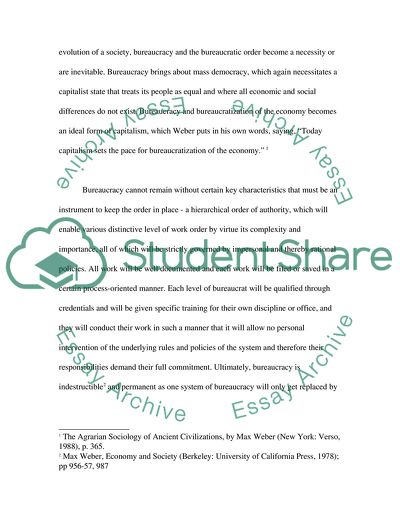Cite this document
(How Webers Elements of Bureaucracy Theory Permeate the Civil Service Literature review, n.d.)
How Webers Elements of Bureaucracy Theory Permeate the Civil Service Literature review. Retrieved from https://studentshare.org/sociology/1721649-how-webers-elements-of-bureaucracy-theory-permeate-the-civil-service-system-through-impersonal-decisions-by-laws
How Webers Elements of Bureaucracy Theory Permeate the Civil Service Literature review. Retrieved from https://studentshare.org/sociology/1721649-how-webers-elements-of-bureaucracy-theory-permeate-the-civil-service-system-through-impersonal-decisions-by-laws
(How Webers Elements of Bureaucracy Theory Permeate the Civil Service Literature Review)
How Webers Elements of Bureaucracy Theory Permeate the Civil Service Literature Review. https://studentshare.org/sociology/1721649-how-webers-elements-of-bureaucracy-theory-permeate-the-civil-service-system-through-impersonal-decisions-by-laws.
How Webers Elements of Bureaucracy Theory Permeate the Civil Service Literature Review. https://studentshare.org/sociology/1721649-how-webers-elements-of-bureaucracy-theory-permeate-the-civil-service-system-through-impersonal-decisions-by-laws.
“How Webers Elements of Bureaucracy Theory Permeate the Civil Service Literature Review”. https://studentshare.org/sociology/1721649-how-webers-elements-of-bureaucracy-theory-permeate-the-civil-service-system-through-impersonal-decisions-by-laws.


